What are the most popular programming languages in 2020?
If you ask any experienced developer, you’ll get more or less the same response. It doesn’t matter what language you use as long as it’s the right one for the job. And as long as the budget, timeline and expertise are in line with the expected outcome. That’s what really matters.
Nevertheless, it’s important to keep an eye on the trends, because some languages fall out of favor and end up being supported less and less as a result. Plus, there’s the question of employment — the more popular a programming language is, the more job vacancies there are.
Logical — yes. But we decided to compare the top-10 programming languages of 2020 (so far) with stats from recent reports on the most in-demand and highest-paying languages.
The top 10 list according to Github and Stack Overflow
Github’s PYPL (PopularitY of Programming Language) index measures how often language tutorials are searched for on Google. The numbers below come from data provided by Google Trends. PYPL is an interesting way of assessing popularity and we believe it’s one of the best tools to gauge what to learn next.
This is the top-10:
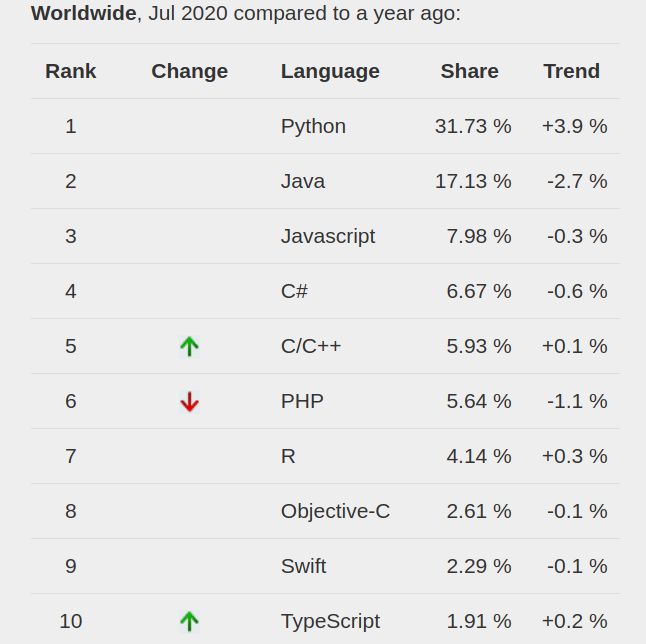
The PYPL index comes from analyzed raw data, so we felt a good balance would be to look at a massive annual survey conducted by Stack Overflow — the 2020 Developer Survey.
In February 2020, approximately 65,000 developers responded to a number of questions pertaining to technologies, tools and careers.
These are the most used programming/scripting/markup languages according to surveyed developers;
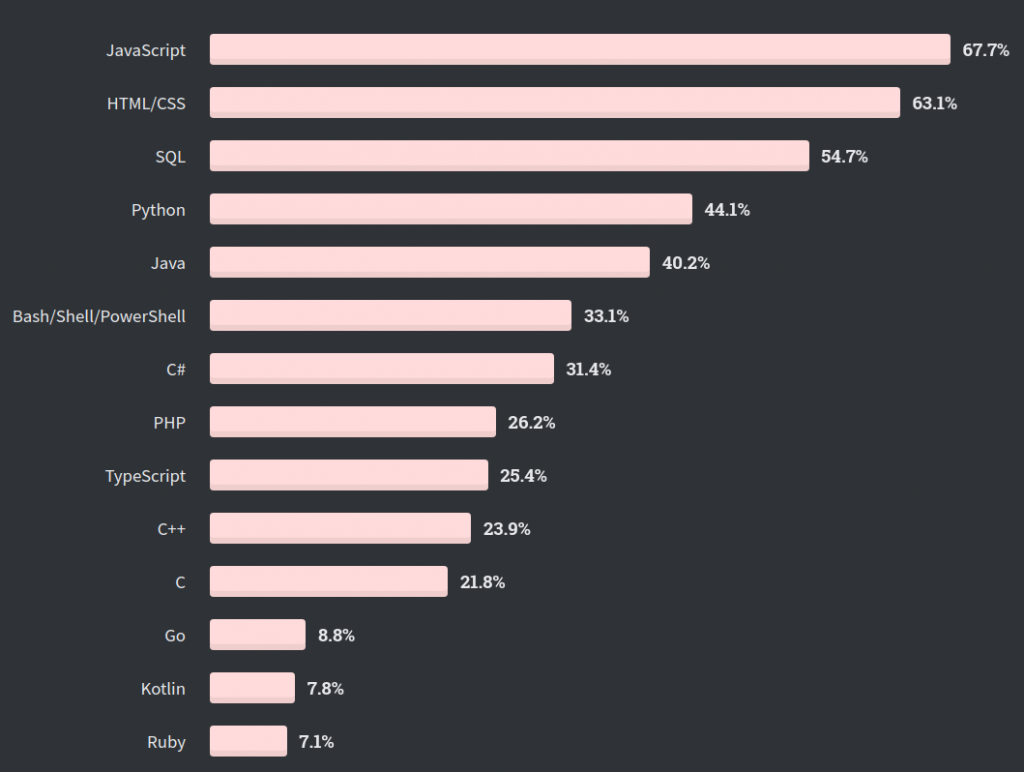
Another part of the survey asked developers which programming language they loved most.
Here’s what that revealed.
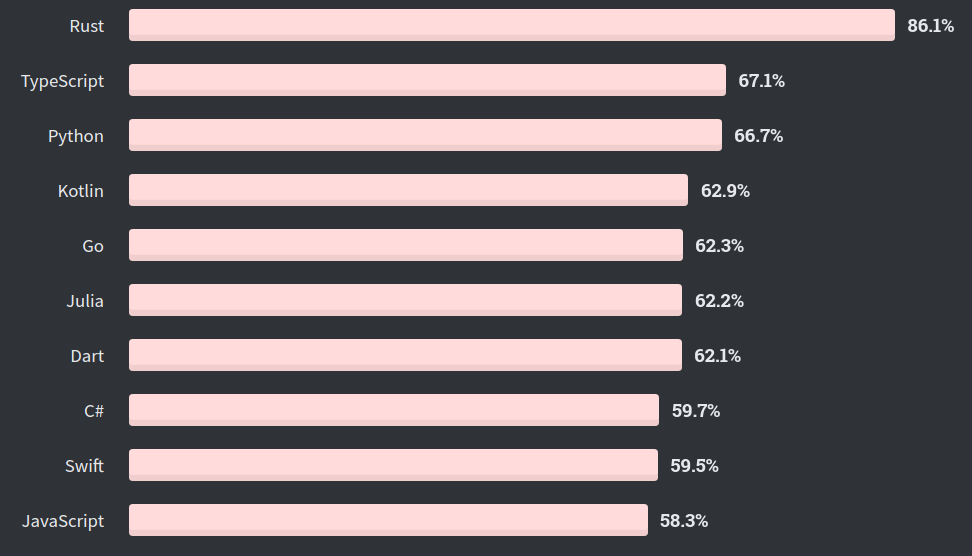
Next, we cross-checked these three data sources (PYPL, Stack Overflow – most used and most loved) to get a better picture of popularity. Note: we combined C and C++ and removed scripting languages from the list to clean up the data a bit.
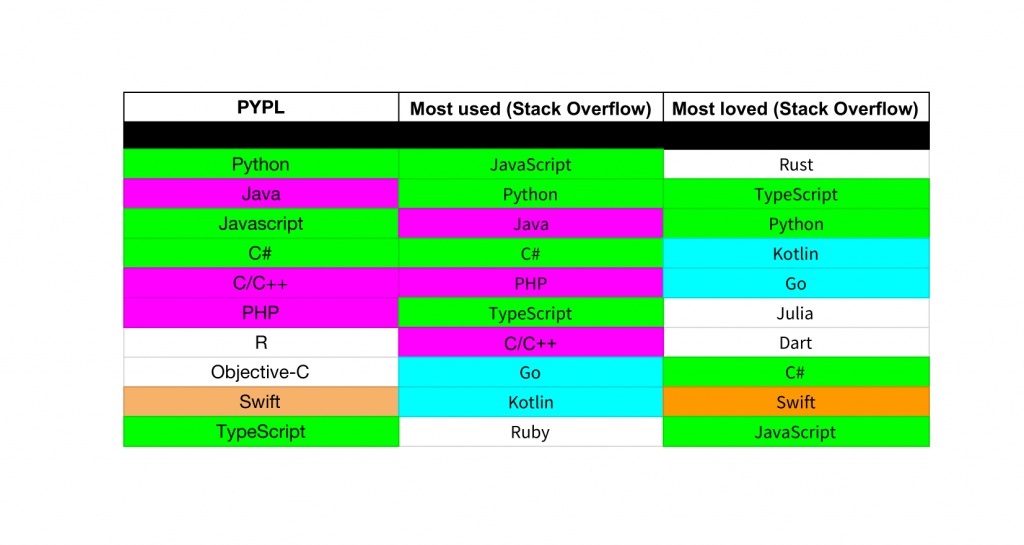
Green – Most popular, most used and most loved
Magenta – Most popular and most used
Orange – Most popular and most loved
Blue – Most used and most loved
Maybe not the most scientific method, but judging by this data, the true most popular languages among developers are Python, JavaScript, C# and TypeScript.
Now that we have an idea of what’s popular, how does this match up to what’s on the job market?
The current job market and the most high-paying developer jobs
This is data from a report by Hired.com which highlights the most in-demand (number of interview requests per candidate) coding languages across the globe.
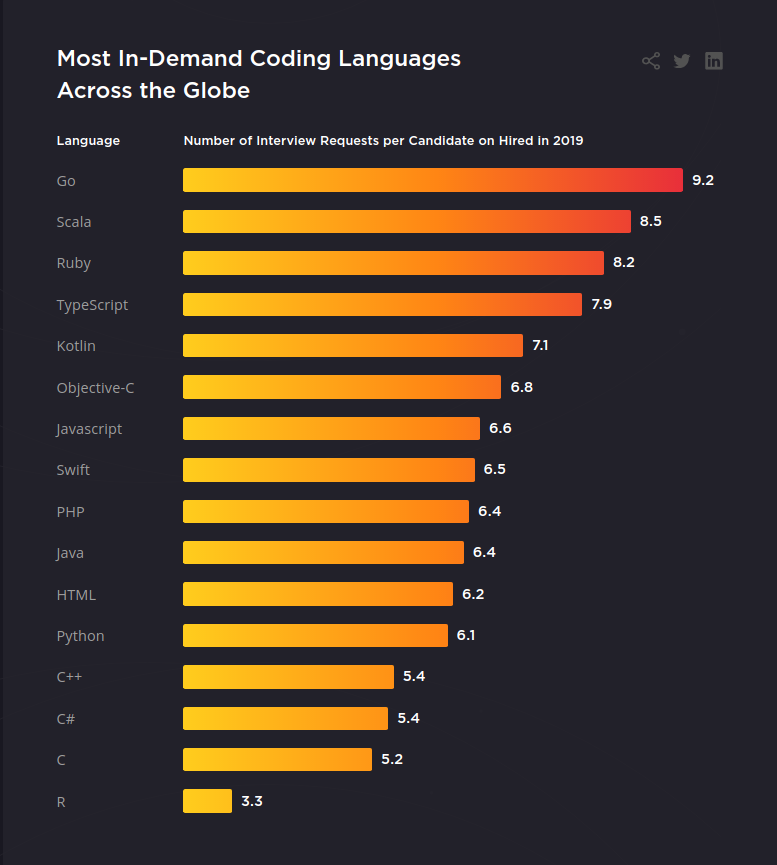
The 2019 Global developer population report by Slashdata, showed the total number of developers worldwide by coding language.
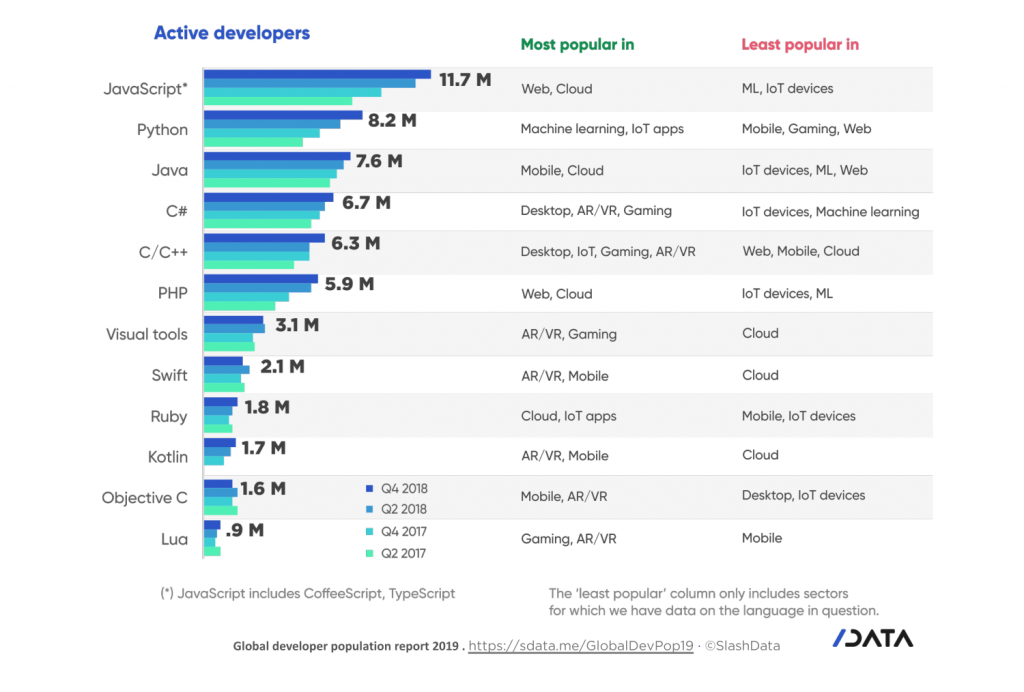
Salary Expectations by Language
According to the Stack Overflow survey:
“Salaries also differ in terms of years of experience when looking at the programming language a developer uses as well. For most languages, the relationship between salary and years of coding experience is linear. However, we see some outliers with users of Python and R commanding higher salaries. This could be explained by the fact that these languages are often used by data scientists who are among the most highly compensated developers.”
Here’s a graph of the worldwide median salary in $USD for the top programming languages:
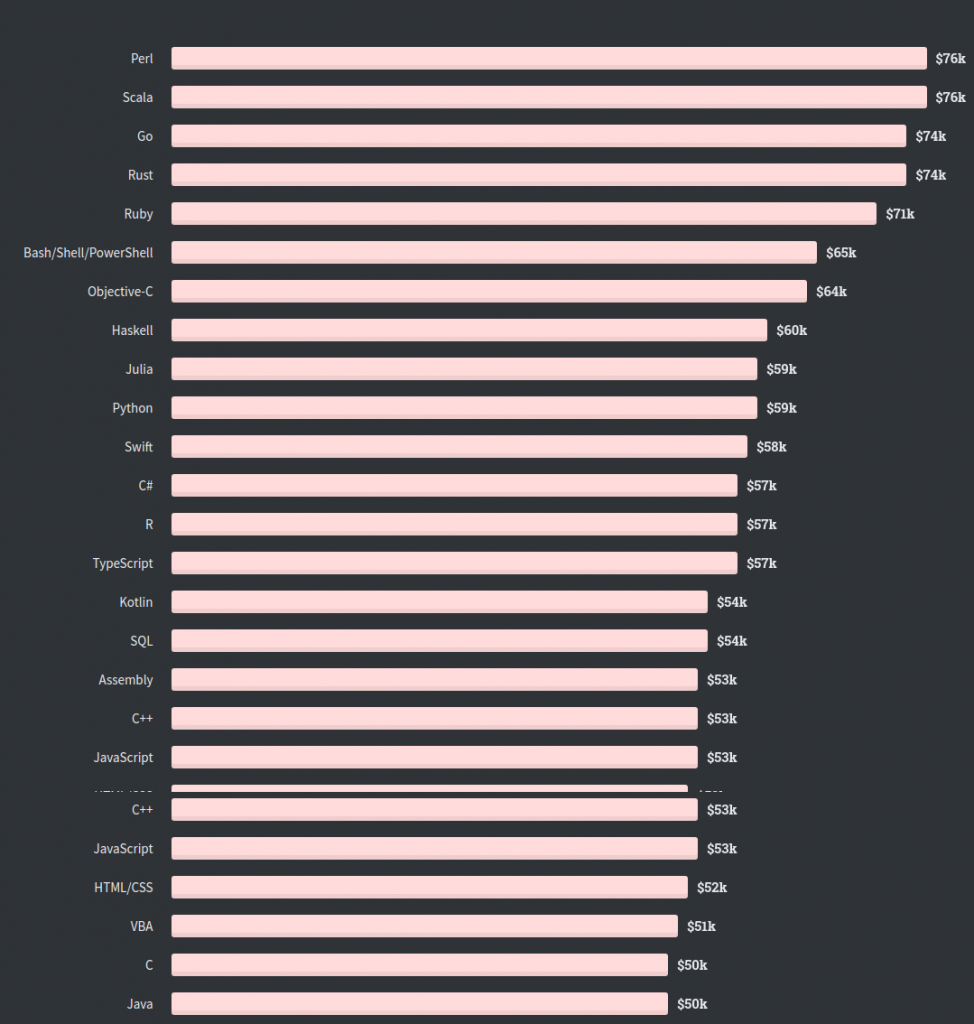
Really insightful and somewhat unexpected. As noted by the Stack Overflow editors, Perl is in a world of its own 🙂
Takeaways: Does popular = high-paying?
From what we’ve learned, there’s a lot more to take into account other than pure popularity. It really depends on where you live, what you experience level is and only then the technology. Hopefully we didn’t confuse you too much with all the languages and figures.
What you should take away from this article:
- Don’t worry too much about whether the technology you’re learning is #1 or #20. Instead, focus on honing pure programming skills, CI/CD, architecture patterns and learning from higher tenured programmers.
- With this knowledge, learning a new technology is much easier, It becomes a matter of how soon, and not if, you’ll learn the ins and outs of a particular tech stack,
- Although unfortunate for the world as a whole, the coronavirus crisis is making remote job opportunities more realistic for companies. Now that they’ve seen that remote work can be productive, they’re more likely to offer remote positions.
- The previous point is a huge plus if your state/region/country is below average in terms of salary. Higher salary for the same skills in a remote position — awesome news for beginner and expert developers alike!